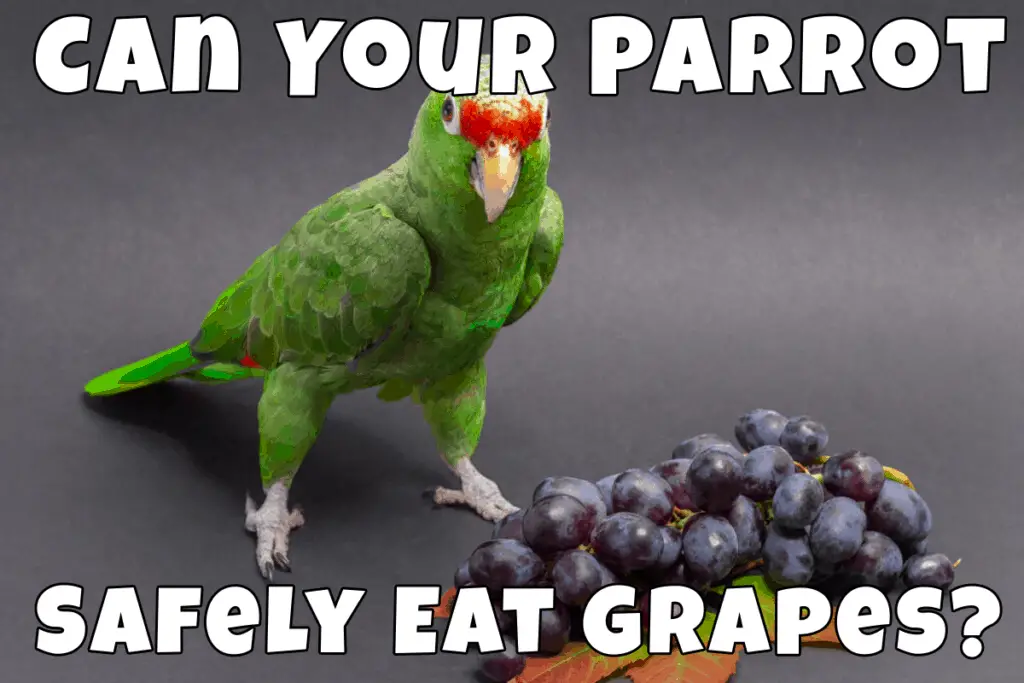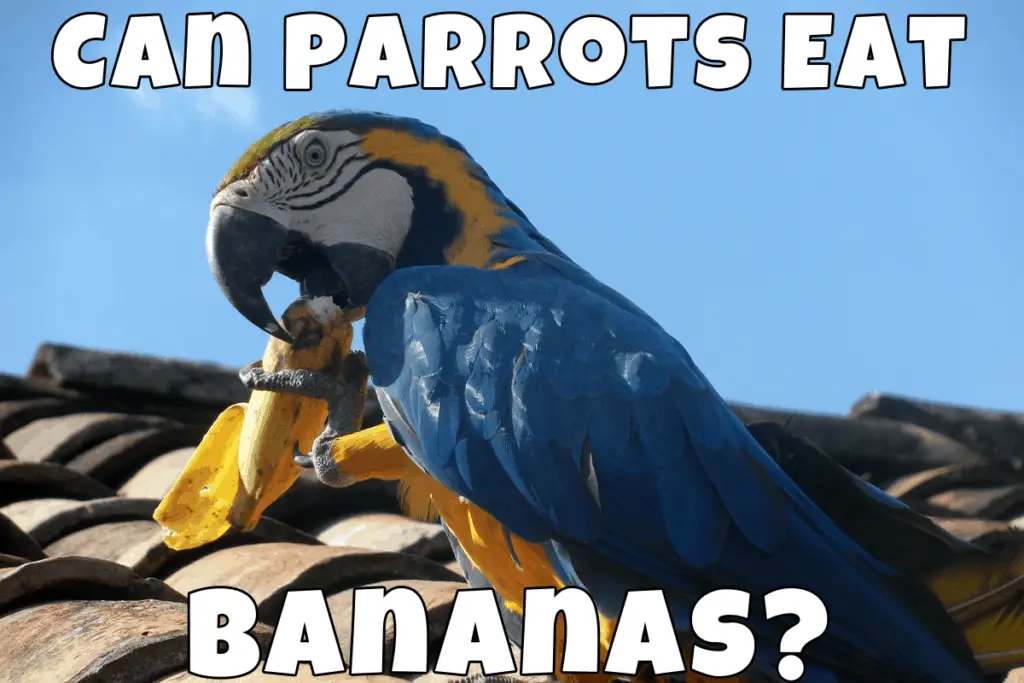Have you ever tried Swiss chard? These are delicate leaves of different colors, similar in taste to cabbage. Chard is very beneficial for human health because it contains a large number of vitamins and minerals. And what about parrots? Should you add this vegetable to your pet’s diet for some benefits? Can parrots eat Swiss chard safely?
Yes, parrots can eat Swiss chard without harm to their health. There are several types of this vegetable, and all of them are safe for your pet. You can choose rainbow Swiss chard with yellow and white stems or classic Swiss chard with green leaves and red stems.
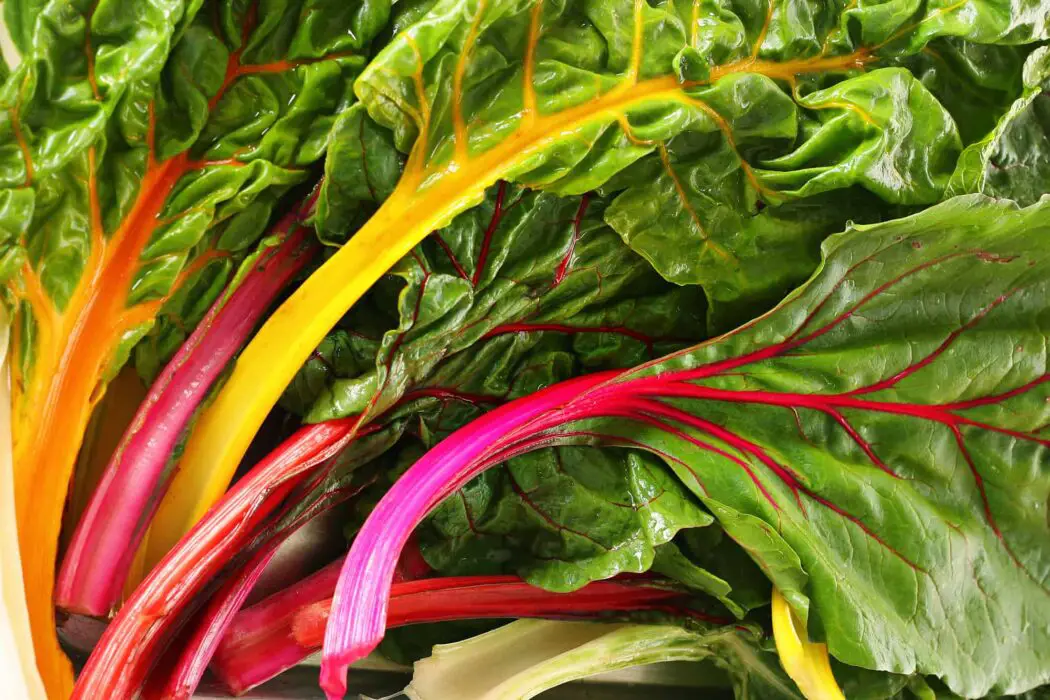
Swiss chard belongs to the beet family, but the edible part is its dense leaves. They are thick and similar in taste to cabbage. Chard has wrinkled leaves and a tough stem with a slightly bitter flavor that disappears after cooking. This article will discuss the benefits of Swiss chard for your parrot and the basic rules for feeding your pet. Stay with us to find out more!
Can Parrots Eat Swiss Chard Stems?
Chard stems are very dense and tough, but they are completely safe for your pet parrot. However, it may be difficult for your parrot to eat them, so you should prepare the stems before feeding your pet.
If you want to treat them with raw stems, you should chop them and mix them with other vegetables or fruits. For example, I like to combine Swiss chard with fennel pieces and chopped apples. So your parrot will get a lot of vitamins in one feeding. You can also boil or steam the stems to make it easier for your parrot to digest them.
Can Parrots Eat Lemongrass Safely?
Can Parakeets Eat Swiss Chard?
Yes, they can, but there is one rule you should keep in mind. Swiss chard is high in oxalic acid, harming your parrot’s digestion. Therefore, you should give them about one leaf per week, alternating Swiss chard with other leafy vegetables that contain different vitamins.
Can Conures Eat Swiss Chard?
Conures can eat Swiss chard and enjoy its health benefits. Of particular value is the large amount of calcium in this vegetable. It has a positive effect on the feathers, skin, and bones of conures. However, you need to carefully chop the Swiss chard, as it can be difficult for them to eat the tough leaves and stems.
Also, cooking Swiss chard will be a good option for better digestion of your parrot. You can boil the leaves and stems or steam them without adding salt. Cooked leaves have a delicate and savory flavor.
How Can I Prepare Swiss Chard for My Parrots?
Parrots can eat both raw and cooked Swiss chard. I recommend that you give them both options so that your pet chooses what they like more – crunchy or soft, tender leaves. However, you should remember that while cooking makes the Swiss chard easy to digest and removes the bitterness, it will also reduce the number of nutrients. So if you want your parrot to get all the nutritional value, give them the raw version as well.
How do you prepare Swiss chard for yourself? Usually, it is a frying pan, leaves, a little olive oil, and a pinch of salt. But if salt is dangerous for parrots, then a drop of olive oil can bring them some benefits, especially for the skin and digestion. If you are in doubt about how olive oil will affect your parrot, steam the Swiss chard without adding any other ingredients. Remember that tough stems take longer to cook than soft Swiss chard leaves.
Can Parrots Eat Fennel? Is It Safe for Them?
If you want your pet parrot to get the full value of Swiss chard, feed them raw leaves. Chop the leaves and stems and mix them with other parrot food. The size of a piece of Swiss chard depends on the size of your pet.
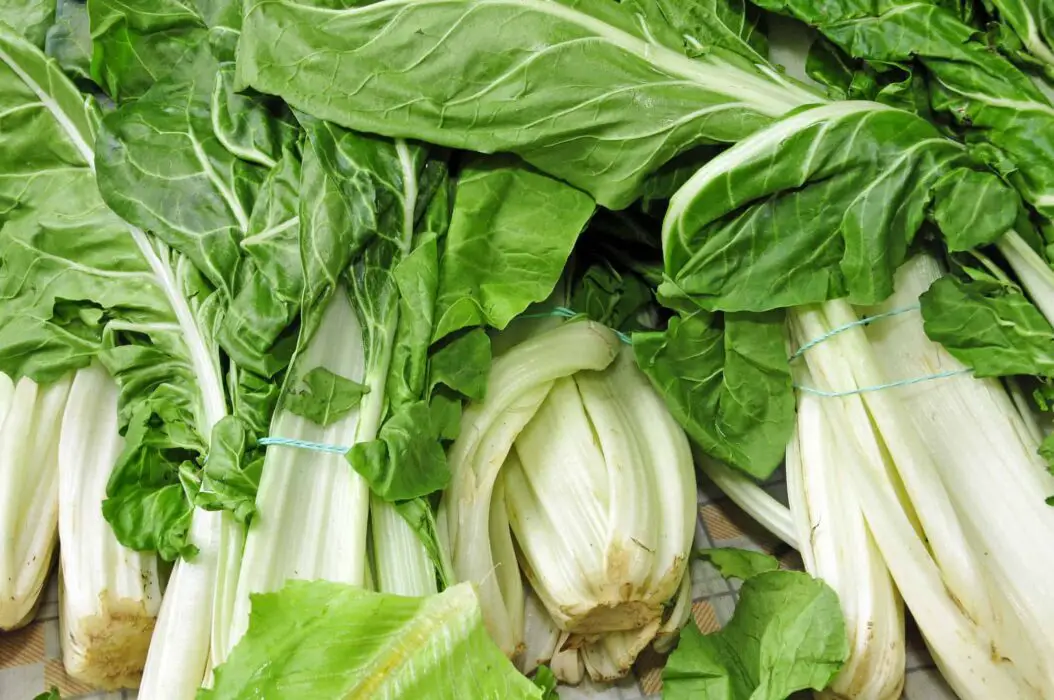
Does Swiss Chard Have Any Nutritional Benefits for Parrots?
Of course, Swiss chard has many benefits for your pet parrot. Let’s look at them in more detail.
Vitamins and Antioxidants
Swiss chard is rich in vitamins. Among them are vitamins A, C, and K in large quantities. These vitamins are essential for the proper functioning of your pet’s body. Vitamin K is especially important because it promotes healthy blood pressure and helps reduce blood clotting.
Chard is also high in antioxidants and polyphenols. These elements help your parrot avoid various diseases such as diabetes, cancer, and diseases of the cardiovascular system.
Stronger Bones
In addition to vitamins, Swiss chard contains different minerals. Magnesium, potassium, calcium, and iron are especially important for your parrot. Regular consumption of these minerals helps your pet maintain healthy bones, beaks, feathers, and claws.
Low-calorie
Swiss chard is an excellent source of healthy fiber that helps regulate blood sugar. Like all green leafy vegetables, it is low in calories and carbohydrates and may be helpful in managing your parrot’s healthy weight.
Are Artichokes Safe for Parrots to Eat?
Where Can I Find Swiss Chard?
You can usually find Swiss chard at the grocery store in the vegetable section or in farmers’ markets. It is often sold in 4-8 leaves, so you don’t have to buy a lot. You can buy a variety of Swiss chard, from regular Swiss chard with red stems to rainbow ones with yellow or white stems. All types of Swiss chard are good for your pet parrot.
You need to thoroughly clean your Swiss chard to get rid of pesticides if you can’t afford to buy these vegetables. Also, choose fresh and crunchy leaves because wilted leaves do not have much nutritional value. Cut off about one inch of the stem and use the rest to feed your parrot.
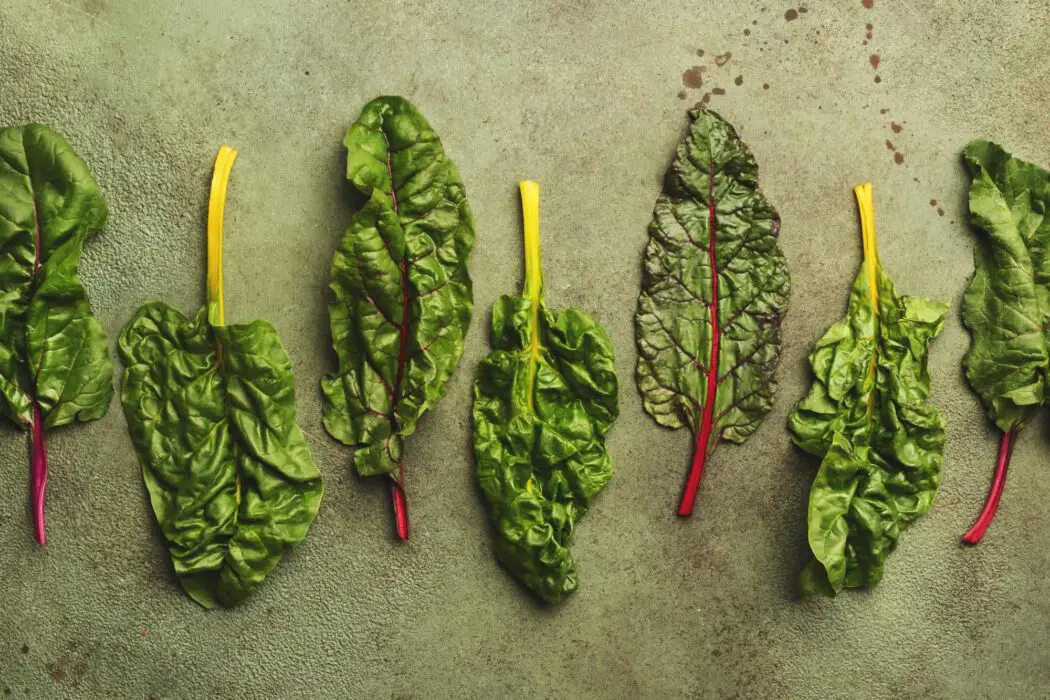
Conclusion
Summing up, I can say that Swiss chard is a very useful vegetable for your parrot. However, you should be aware of the high content of oxalic acid and feed your pet Swiss chard 1-2 times a week.
If you are feeding your parrot Swiss chard for the first time, then you should monitor your pet to make sure they tolerate it well. Add these crunchy green leaves to your pet parrot’s diet for all of its health benefits!

